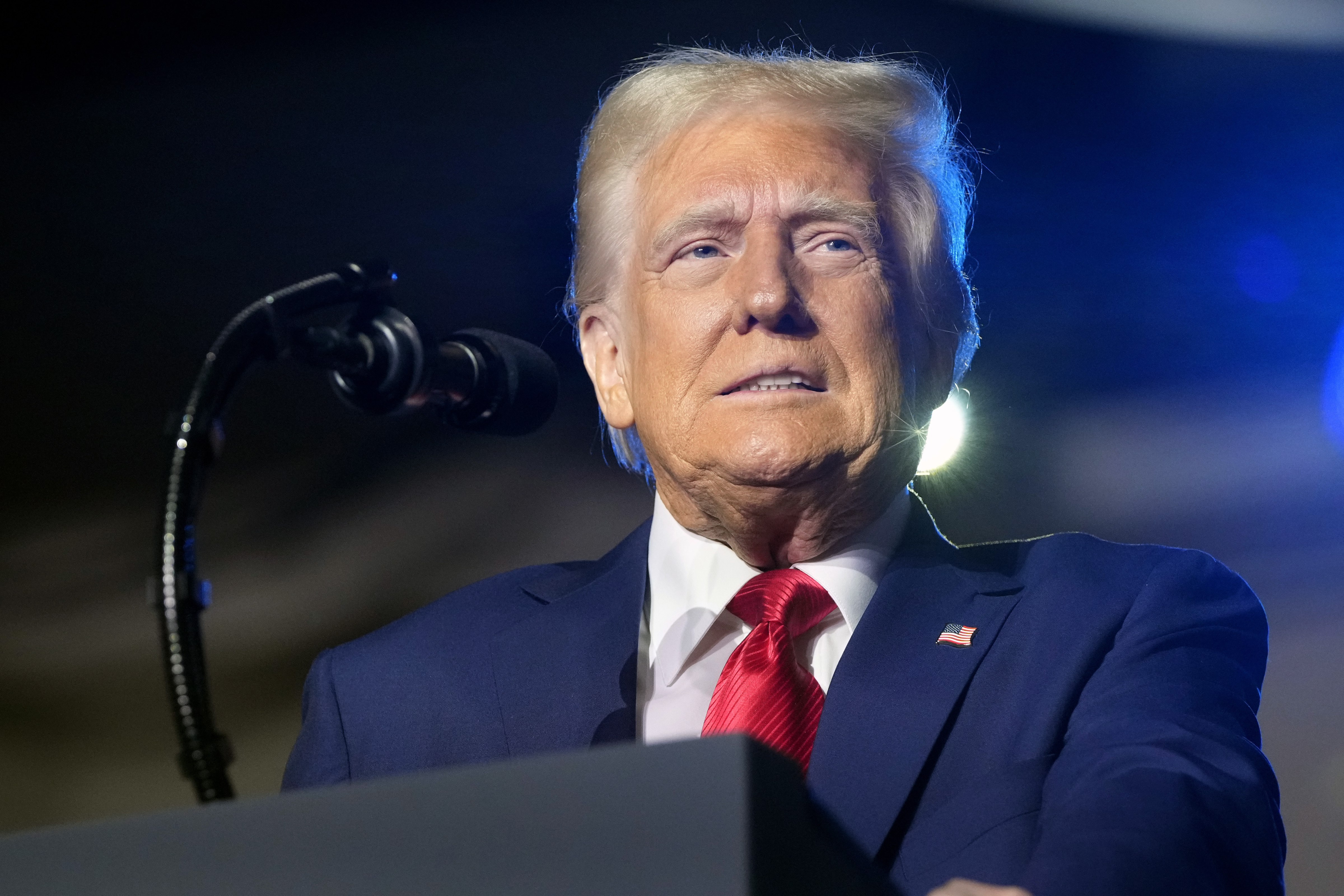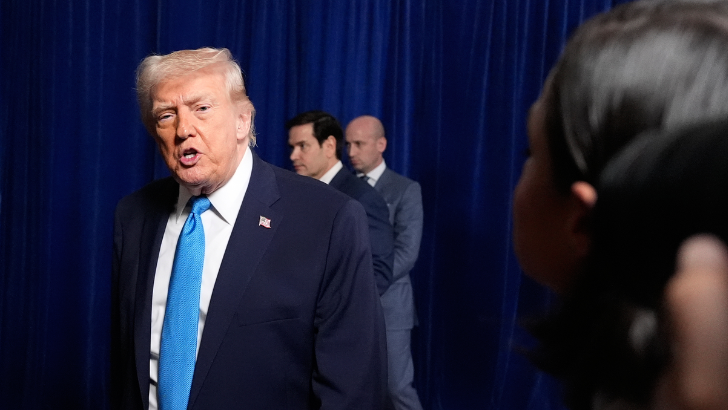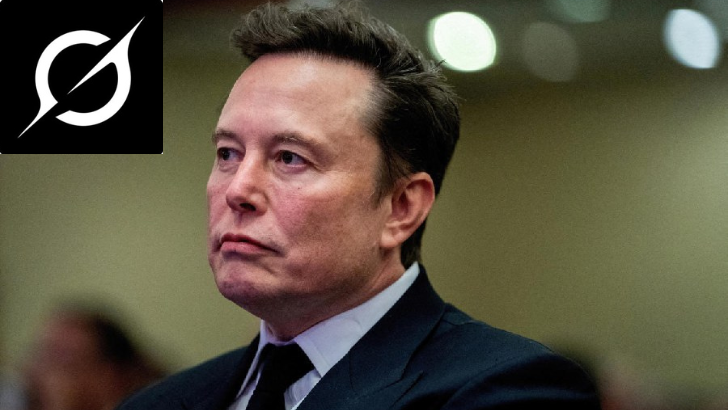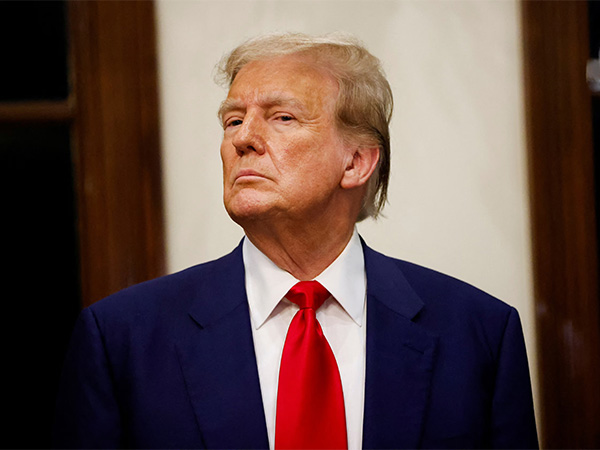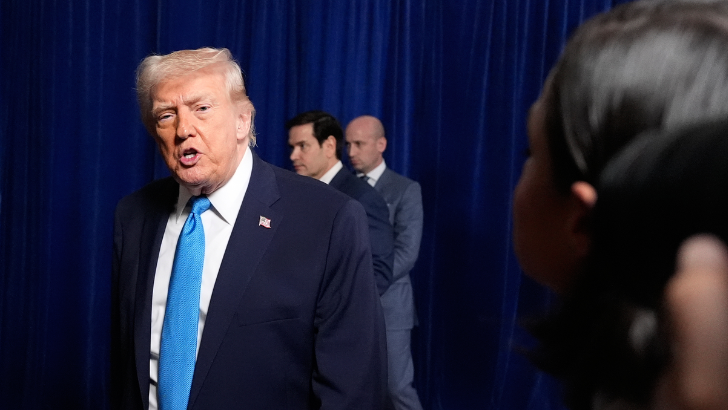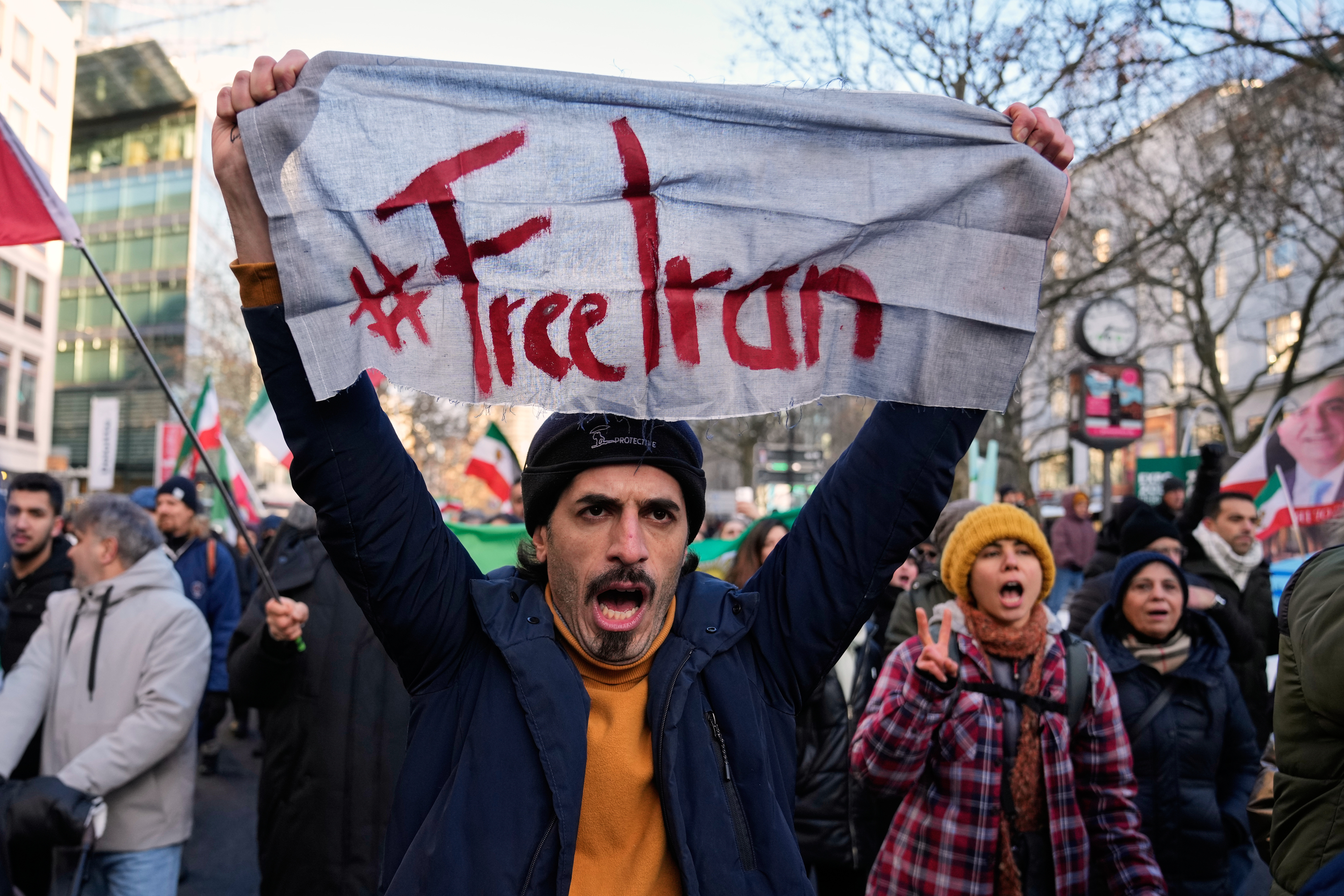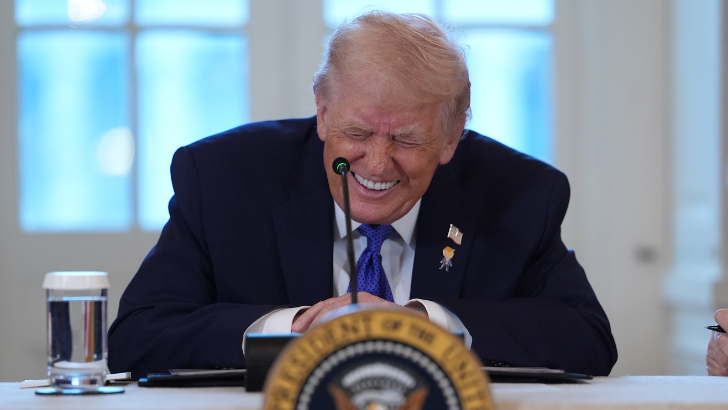Trump puts tariffs on Canada, Mexico, China, spurring trade war
Mexico's president also ordered retaliatory tariffs. China did not immediately respond to Trump's action.
PTI
-
President Donald Trump
WASHINGTON, 2 FEB
President Donald Trump on
Saturday signed an order to impose stiff tariffs on imports from Mexico, Canada
and China, drawing swift retaliation and an undeniable sense of betrayal from
the country's North American neighbours as a trade war erupted among the
longtime allies.
The Republican president posted on social media that the tariffs
were necessary “to protect Americans," pressing the three nations to do
more to curb the manufacture and export of illicit fentanyl and for Canada and
Mexico to reduce illegal immigration into the US.
The
tariffs, if sustained, could cause inflation to significantly worsen,
threatening the trust that many voters placed in Trump to lower the prices of
groceries, gasoline, housing, autos and other goods as he promised. They also
risked throwing the global economy and Trump's political mandate into turmoil
just two weeks into his second term.
Trump
declared an economic emergency in order to place duties of 10 per cent on all imports
from China and 25 per cent on imports from Mexico and Canada. Energy imported from
Canada, including oil, natural gas and electricity, would be taxed at a 10 per cent rate. Trump's order includes a mechanism to escalate the rates charged by the
US against retaliation by the other countries, raising the specter of an even
more severe economic disruption.
“The
actions taken today by the White House split us apart instead of bringing us
together,” Canadian Prime Minister Justin Trudeau said in a sombre tone as he
announced that his country would put matching 25 per cent tariffs on up to $155
billion in US imports, including alcohol and fruit.
He
channelled the betrayal that many Canadians are feeling, reminding Americans
that Canadian troops fought alongside them in Afghanistan and helped respond to
myriad crises from wildfires in California to Hurricane Katrina.
“We
were always there standing with you, grieving with you, the American people,”
he said.
Mexico's
president also ordered retaliatory tariffs. China did not immediately respond
to Trump's action.
"We
categorically reject the White House's slander that the Mexican government has
alliances with criminal organisations, as well as any intention of meddling in
our territory,” Mexican President Claudia Sheinbaum wrote in a post on X while
saying she had instructed her economy secretary to implement a response that
includes retaliatory tariffs and other measures in defense of Mexico's
interests.
“If
the United States government and its agencies wanted to address the serious
fentanyl consumption in their country, they could fight the sale of drugs on
the streets of their major cities, which they don't do and the laundering of
money that this illegal activity generates that has done so much harm to its
population.”
The
premier of the Canadian province of British Columbia, David Eby, specifically
called on residents to stop buying liquor from US “red” states and said it was
removing American alcohol brands from government store shelves as a response to
the tariffs.
The
tariffs will go into effect on Tuesday, setting up a showdown in North America
that could potentially sabotage economic growth. A new analysis by the Budget
Lab at Yale laid out the possible damage to the US economy, saying the average
household would lose the equivalent of $1,170 in income from the taxes.
Economic growth would slow and inflation would worsen - and the situation could
be even worse with retaliation from other countries.
Democrats
were quick to warn that any inflation going forward was the result of Trump's
actions.
“You're
worried about grocery prices. Don's raising prices with his tariffs,” Senate
Democratic leader Chuck Schumer of New York wrote in a series of posts on X.
“You're worried about tomato prices. Wait till Trump's Mexico tariffs raise
your tomato prices,” read another. “You're worried about car prices. Wait till
Trump's Canada tariffs raise your car prices,” read another.
A
senior US administration official, speaking on condition of anonymity to
brief reporters, said the lower rate on energy reflected a desire to minimize
disruptive increases on the price of gasoline or utilities. That's a sign White
House officials understand the gamble they're taking on inflation. Price spikes
under former President Joe Biden led to voter frustration that helped return
Trump to the White House.
The
order signed by Trump contained no mechanism for granting exceptions, the
official said, a possible blow to homebuilders who rely on Canadian lumber as
well as farmers, automakers and other industries.
The
official did not provide specific benchmarks that could be met to lift the new
tariffs, saying only that the best measure would be fewer Americans dying from
fentanyl addiction.
The
order would also allow for tariffs on Canadian imports of less than $800.
Imports below that sum are currently able to cross into the United States
without customs and duties.
“It
doesn't make much economic sense,'' said William Reinsch, senior adviser at the
Center for Strategic and International Studies and a former US trade
official. “Historically, most of our tariffs on raw materials have been low
because we want to get cheaper materials so our manufacturers will be
competitive ... Now, what's he talking about? He's talking about tariffs on raw
materials. I don't get the economics of it.''
With
the tariffs, Trump is honouring promises that are at the core of his economic
and national security philosophy. But the announcement showed his seriousness
around the issue as some Trump allies had played down the threat of higher
import taxes as mere negotiating tactics.
The
president is preparing more import taxes in a sign that tariffs will be an
ongoing part of his second term. On Friday, he mentioned imported computer
chips, steel, oil and natural gas, as well as copper, pharmaceutical drugs and
imports from the European Union - moves that could essentially pit the U.S. against
much of the global economy.
Trudeau
warned of economic pain as the tariffs take effect and encouraged Canadians to
"choose Canadian products and services rather than American ones.” But he
also voiced optimism in the enduring relationship between the two countries.
“It is going to have real consequences for people, for workers on both sides of our border. We don't want to be here. We didn't ask for this, but we will not back down in standing up both for Canadians and for the incredible successful relationship between Canada and the United States,” Trudeau said.
Leave a Reply
Your email address will not be published. Required fields are marked *








